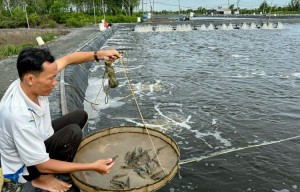
Does Weekly Sampling Really Cause Losses in Shrimp Farms?
31 March 2025 2061 View
One crucial aspect of vannamei shrimp farming is weekly sampling. Sampling, which is done by observing several shrimp as a representative of the whole cultivation, is carried out to assess shrimp growth and condition as well as calculate their feed requirements. Unfortunately, many farmers are reluctant to perform sampling because they believe that it can lead to shrimp mortality and financial losses. What is the right way to conduct sampling to avoid such losses?

Partial Harvest or Total Harvest? You Might Want to Consider These
31 March 2025 2047 View
Harvesting is the final stage in the cultivation process when farmers take shrimp that have been cultivated for some time. During harvesting, farmers can evaluate the cultivation process that has been carried out for their considerations to implement better SOPs in the next cycle.

Vannamei Shrimp Life Cycle: From Eggs to Adult Shrimp
31 March 2025 2169 View
The vannamei shrimp life cycle consists of several stages, starting from eggs to finally becoming adult shrimp. Every developmental stage has different characteristics.

Vibrio: The Cause of Shrimp Diseases and How to Prevent
31 March 2025 2261 View
Vibrio bacteria is the major threat lurking in shrimp farming besides viruses. Its presence harms shrimp and may cause a number of deadly diseases when the density is > 10⁴ CFU/mL. If left untreated, this disease will cause mass shrimp deaths and lead to economic losses for farmers.

Factors that Affect the Change of Salinity Level in Shrimp Ponds
31 March 2025 1926 View
One of the most significant aspects of shrimp farming is the monitoring of water quality. There are several parameters that need to be maintained to ensure that the quality of shrimp pond water remains ideal, one of which is salinity.
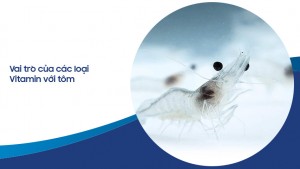
Vitamins for Vannamei Shrimp to Grow Faster
31 March 2025 1672 View
In shrimp cultivation, nutrition is one of the key factors that must be considered for optimal shrimp growth. In addition to proteins, lipids, and carbohydrates that shrimp can obtain from their feed, farmers also need to provide vitamins to support shrimp growth. Vitamins are typically mixed into the feed at a dose of around 3 g/1 kg of feed. What are the essential vitamins for vannamei shrimp to grow faster?

How to Get Rid of Moss in Shrimp Farms
31 March 2025 1739 View
Moss is one of the plants that can grow in shrimp farms. Excessive moss growth in farms can lead to loss in shrimp cultivation, as moss decreases water quality and hinders shrimp growth. Moss can be removed by improving and maintaining pond water quality, installing netting fences, and using biological agents. Learn more about how to prevent and get rid of moss in your shrimp farm through this article.

The Positive Impacts of Shrimp Farms for the Environment
25 March 2025 1910 View
Managing shrimp farms is not just about boosting productivity, it’s also about ensuring that cultivation operations have a positive impact on the surrounding environment. Since shrimp cultivation relies on various natural resources, every activity in the farm inevitably influences the surrounding ecosystem. What are the positive impacts of shrimp farming?
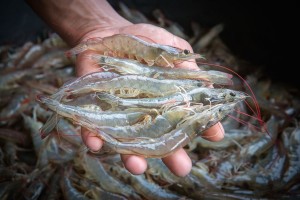
Nutritional Needs of Vannamei Shrimp for Optimal Growth
25 March 2025 1712 View
The nutritional needs of vannamei shrimp must always be considered by farmers to ensure optimal growth, especially in intensive and super-intensive cultivation systems.

5 Tips on Managing Vannamei Shrimp Ponds
25 March 2025 1922 View
Success when cultivating always depends on our way of managing vannamei shrimp ponds. Both in terms of technical and non-technical factors. Therefore, farmers need to have good pond planning and management.

The Morphology of Vannamei Shrimp that You Need to Know
17 March 2025 2052 View
Vannamei shrimp is one of the popular commodities that is cultivated in Indonesia. Although considered a marine shrimp, vannamei shrimp thrives well in brackish cultivation environments. If you are interested in cultivating vannamei shrimp, you first need to get familiar with the morphology or structure and body parts of vannamei shrimp.

The Benefits of Papaya Leaves for Vannamei Shrimp
17 March 2025 2017 View
In vannamei shrimp cultivation, disease is one of the threats that farmers need to prevent. Aside from implementing strict biosecurity, shrimp disease can also be avoided by giving immunostimulants mixed in shrimp feed. One type of natural immunostimulant that can be used is papaya leaf. Papaya leaves are beneficial for vannamei shrimp at a dose of 30 mg/l to enhance immune response and prevent disease.
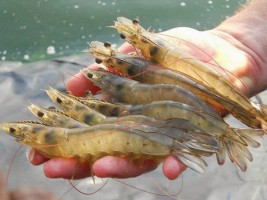
Tips and Procedures for Shrimp Health Checking
28 February 2025 1963 View
Vannamei shrimp are known to be superior to tiger prawns in terms of resistance to pathogen attacks. However, there have been changes that render vannamei shrimp vulnerable to pathogen attacks as well. Therefore, farmers must know the correct procedures for checking shrimp health to prevent outbreaks.
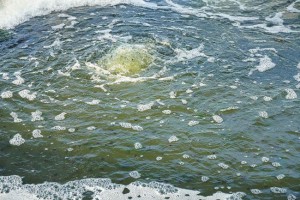
How to Decrease Water pH in Vannamei Shrimp Ponds
27 February 2025 2590 View
Maintaining pond water quality is a crucial aspect in shrimp cultivation that every farmer needs to know. One of the key water quality parameters affecting shrimp growth and survival is

Nutritional Needs of Vannamei Shrimp for Optimal Growth
27 February 2025 1925 View
The nutritional needs of vannamei shrimp must always be considered by farmers to ensure optimal growth, especially in intensive and super-intensive cultivation systems.

The Positive Impacts of Shrimp Farms for the Environment
27 February 2025 1718 View
Managing shrimp farms is not just about boosting productivity, it’s also about ensuring that cultivation operations have a positive impact on the surrounding environment. Since shrimp cultivation relies on various natural resources, every activity in the farm inevitably influences the surrounding ecosystem. What are the positive impacts of shrimp farming?

Types of Feed Additives for Vannamei Shrimp and Their Benefits
24 February 2025 2631 View
In addition to using primary feeds in the form of pellets, the cultivation of vannamei shrimp requires the use of feed additives. These feed additives are essential to support the health and better growth of the shrimp.
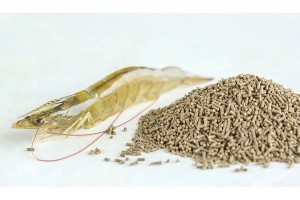
Vietnam’s Shrimp Industry in 2025: Continuing to Face Many Challenges
21 February 2025 4009 View
Vietnam’s shrimp industry is grappling with multiple difficulties. One of the primary issues is the high production cost compared to neighboring countries, mainly due to shrimp feed expenses, which account for a significant proportion—approximately 55–57.2% of total farming costs.



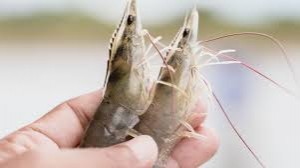
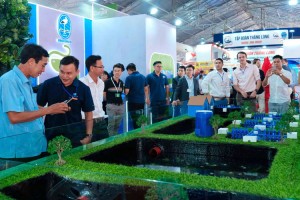
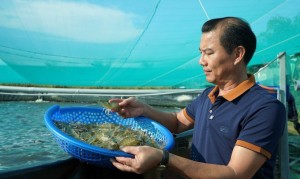

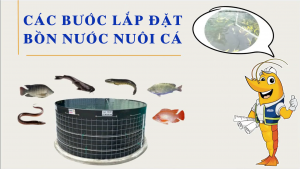

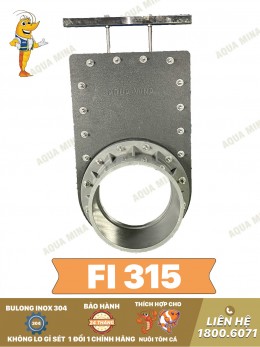
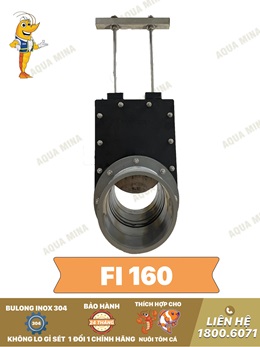
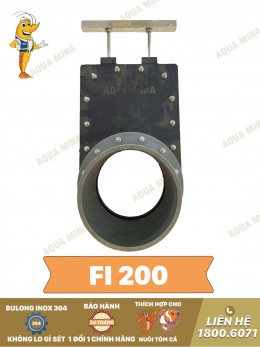
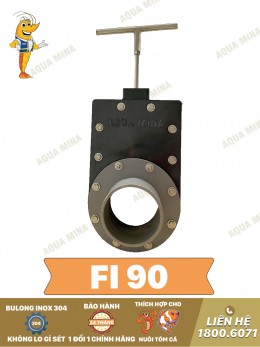
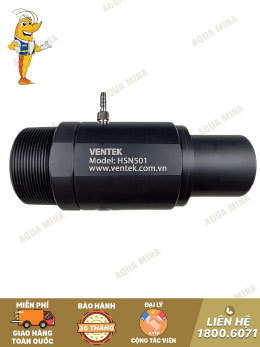
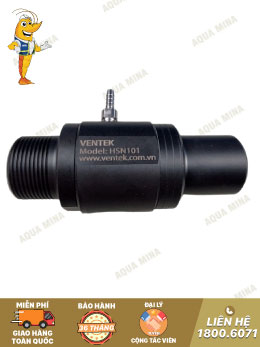
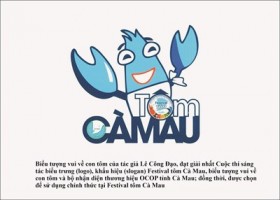
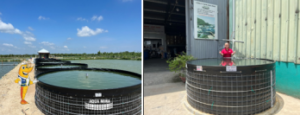
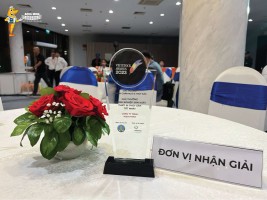
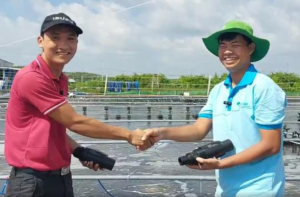
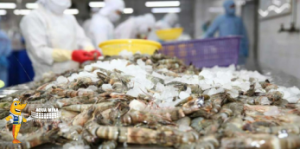
.jpg)